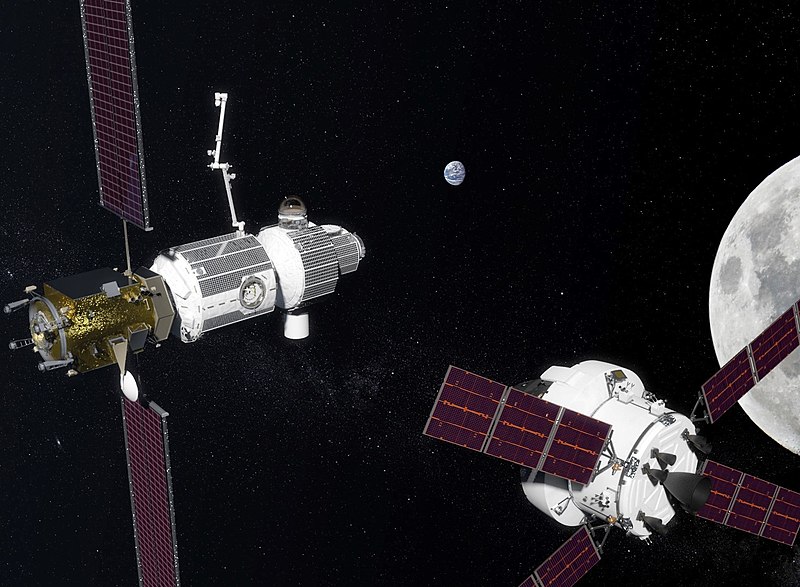Russia Will Help NASA Build an Orbital Moon Station
Credit to Author: Becky Ferreira| Date: Wed, 27 Sep 2017 16:14:18 +0000
Despite rising tensions between Russia and the United States here on Earth, the two nations continue to successfully collaborate on shared goals in space, from the International Space Station to Venus exploration.
Now, NASA and the Russian space agency Roscosmos will join forces on an ambitious mission called the Deep Space Gateway (DSG), an American-led plan to put a human-accessible space station in cislunar, or near-Moon, orbit.
On Wednesday, representatives of NASA and Roscosmos at the 68th International Astronautical Congress in Adelaide, Australia, signed an agreement to work together on the orbital Moon base.
Designed to dock with NASA’s next-generation Orion spacecraft, the DSG would support a crew of four astronauts, making it an invaluable pit stop for human and robotic exploration of the lunar surface. The gateway would also be a staging point for deep space missions to Mars, Venus, or other distant locations. The station’s modules are currently scheduled to be built in the 2020s.
While the finer details of the new agreement still need to be hashed out, including the total estimated cost and projected launch date, the plan at this time is for Roscosmos to develop standardized docking and life support systems for the lunar outpost, and perhaps provide carrier rocket assistance.

“NASA is pleased to see growing international interest in moving into cislunar space as the next step for advancing human space exploration,” Robert Lightfoot, NASA’s acting administrator, said in a NASA statement. “Statements such as this one signed with Roscosmos show the gateway concept as an enabler to the kind of exploration architecture that is affordable and sustainable.”
Read More: Russia and America Are Collaborating on the Most Ambitious Venus Mission Ever
“The agreements reached open new prospects for international cooperation and expand the opportunities for using the capabilities of the Russian space industry,” Roscosmos general director Igor Komarov said in a Roscosmos statement.
The United States, Russia, China, the European Union, and other space powers have expressed interest in developing inhabited Moon villages. Given that The Martian author Andy Weir set his new novel Artemis (which just got a movie deal) in a multicultural lunar town, it seems like the idea of human settlements on the Moon is back in vogue after decades of hibernation.
Get six of our favorite Motherboard stories every day by signing up for our newsletter.